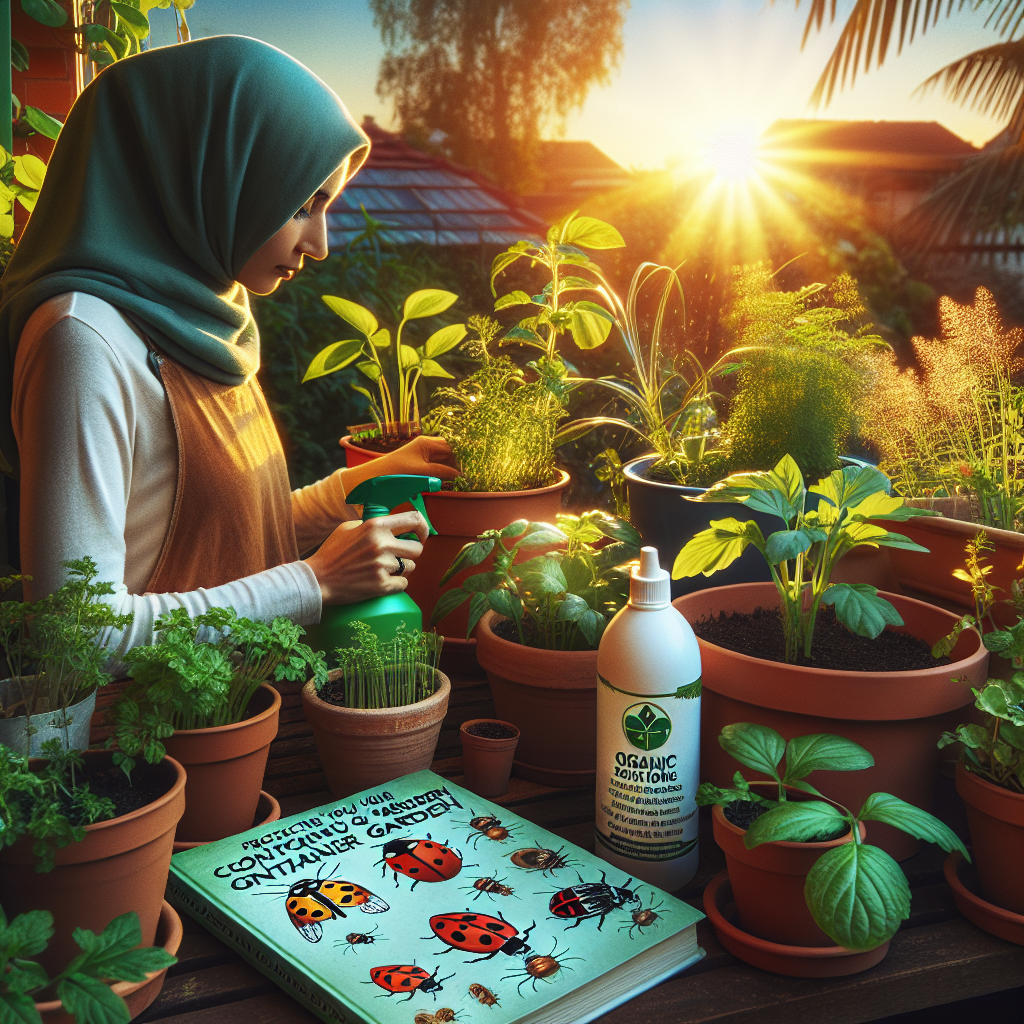Container gardening is a popular and convenient way to grow plants in limited spaces, whether you have a small balcony, patio, or even just a sunny windowsill. However, while container gardens can be beautiful and productive, they are also susceptible to pests that can damage or even destroy your plants. Protecting your container garden from pests is essential to ensuring it thrives and produces healthy crops.
In this article, we will discuss organic solutions for keeping pests at bay in your container garden. We will explore natural methods for deterring common garden pests such as aphids, slugs, snails, and caterpillars without resorting to harmful chemicals that can harm beneficial insects and contaminate your food crops. By incorporating these organic pest control strategies into your gardening routine, you can enjoy a bountiful harvest of fruits, vegetables, herbs, and flowers while supporting a healthy ecosystem in your own backyard.
**Identifying Common Garden Pests**
Before you can effectively protect your container garden from pests, it’s essential to be able to identify the most common culprits. Some of the most common garden pests that may plague your container garden include aphids, spider mites, whiteflies, slugs, snails, caterpillars, and beetles. These insects can damage plant leaves by sucking sap from them or chewing holes in them. They can also spread diseases among plants if left unchecked.
To identify pests in your container garden, regularly inspect your plants for signs of damage such as holes in leaves or wilting foliage. Look for the insects themselves on the undersides of leaves or hiding in the soil around the base of the plant. You may also notice sticky residue on leaves (known as honeydew) left behind by sap-sucking insects like aphids. By familiarizing yourself with the appearance and behavior of common garden pests, you can take action quickly to prevent infestations from getting out of hand.
**Organic Pest Control Methods**
There are several organic pest control methods you can use to protect your container garden from unwanted visitors without resorting to toxic chemicals that may harm beneficial insects or pose risks to human health. One effective strategy is companion planting – growing certain plants together that repel pests or attract beneficial insects that prey on pests. For example:
Planting marigolds around tomato plants can help repel aphids and whiteflies.
Growing basil near peppers can deter hornworms.
Including nasturtiums in your container garden can attract predatory insects like ladybugs that feed on aphids.
Using physical barriers such as row covers or copper tape around containers can also help keep pests like slugs and snails at bay by preventing them from accessing plants.
Another organic pest control method is introducing beneficial insects into your container garden. Ladybugs (lady beetles), lacewings, and predatory mites are natural predators of many common garden pests such as aphids and spider mites. You can purchase these beneficial insects online or at gardening stores and release them into your container garden to help keep pest populations in check.
**Homemade Pest Repellents**
In addition to companion planting and introducing beneficial insects into your container garden,
you can also make homemade pest repellents using simple ingredients found in most kitchens.
A mixture of water, dish soap,
and cayenne pepper sprayed onto plant foliage
can deter soft-bodied pests like aphids
and spider mites without harming the plants.
A solution of neem oil diluted with water
can help control a wide range of insect pests
including aphids,
whiteflies,
and caterpillars
while also serving as an antifungal treatment.
Garlic spray made by blending garlic cloves with water
and straining out the solids
can repel many insect pests including beetles,
slugs,
and cabbage worms.
These homemade pest repellents are safe for use on edible crops when applied properly
and offer an effective alternative to chemical pesticides.
**FAQ**
Q: Are chemical pesticides safe for use in my container garden?
A: Chemical pesticides should be avoided in container gardens due to their potential harm to beneficial insects,
plants,
and human health.
Opt for organic pest control methods instead
to protect both your plants and the environment.
Q: How often should I inspect my container garden for pests?
A: It’s recommended to inspect your container garden at least once a week
for signs of pest damage or infestation.
Early detection allows you to take action swiftly before populations get out of hand.
Q: Can I use store-bought insecticidal soaps in my container garden?
A: Yes,
insecticidal soaps are generally safe for use on most plants grown in containers
when applied according to package instructions.
Be sure to test on a small portion of foliage first
to ensure no adverse effects occur.
In conclusion,
protecting your container garden from pests doesn’t have to involve harsh chemicals that harm the environment.
By utilizing organic solutions such as companion planting,
introducing beneficial insects into your space,
and making homemade pest repellents using common ingredients,
you can create a thriving ecosystem where plants flourish without interference from unwanted visitors.
With regular monitoring and proactive measures,
you can enjoy a bountiful harvest while supporting biodiversity right outside your door.













